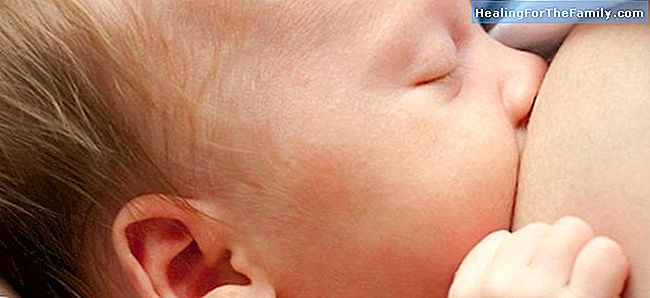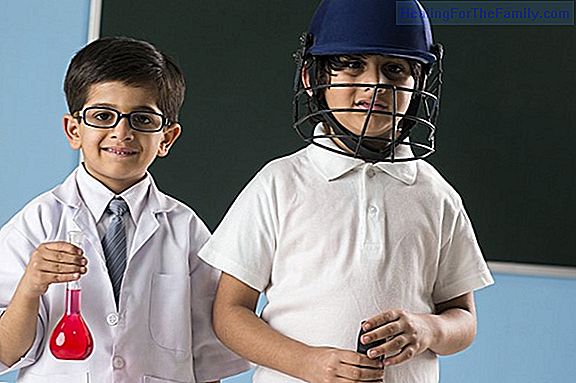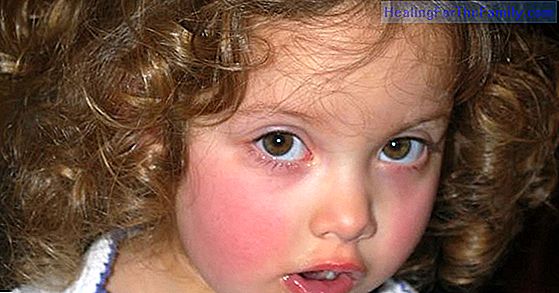High demand babies. How to act
We all know that there are calm, easy babies, who eat well, sleep alone without problems, and other babies that make everything much more difficult: they find it difficult to sleep alone, they usually need the mother's breast, or the bottle , being caught and cradling them in their arms, they cry im
We all know that there are calm, easy babies, who eat well, sleep alone without problems, and other babies that make everything much more difficult: they find it difficult to sleep alone, they usually need the mother's breast, or the bottle , being caught and cradling them in their arms, they cry immediately, they eat badly, they do not like food changes .... In short these last are babies in high demand and suppose an extra exhaustion to the parents, so much that many times they think before having another baby.
According to my experience as a pediatrician and as a mother, this depends more on the baby than on the parents. That is, parents often feel responsible for the attitude of the baby, the crying baby, and how they are educating, and in reality what they do is what they should do: attach to the child. And have no regrets for it.
What is a high birth baby?

The term 'baby of high demand' was coined by Dr. Sears after his experiences with his daughter Hayden. Dr. Sears had 5 children and when he had the last daughter he felt that she was different from the other children, since he behaved differently than what his other children had done, and the methods that worked with the others did not work with her.
How she realized that people close to her, neighbors, friends and family, began to describe her as crying, irritable, uneasy ... she coined the term High Demand Baby or High Need Baby.
Some characteristics of babies in high demand:
-They are intense babies: they put a lot of energy in everything they do, they cry with insistence, they feed with voracity, laugh loudly and protest more strongly if they do not get what they ask for.
-They are tense children, almost hypertonic, and their mind tends to be in a similar state, as ready for anything. They do not like to be quiet or very subject (for example in backpacks in contact with their mother or strollers). If they like arms and physical contact, in fact they need it, but as long as they feel free.
-They sleep little, always looking for new things to do, touch and explore. They also wake up many times, and at the minimum stimulus. They not only need help to fall asleep but also to stay asleep.
-They are very absorbing with respect to their caregivers. They demand contact, love, arms, games, and they are never satisfied. Parents and caregivers must be patient because they feel that "the baby absorbs all their energy."
-They eat very frequently. The suction together with the physical contact reassures and comforts them, for this reason they request food often. Feeding on demand makes them cry less, because they feel more satisfied. If the baby is fed to the breast will not always be eating, sometimes it is non-nutritive suction. If you feed with artificial feeding, you will refuse the bottle when you are satisfied and you will have to calm down with a pacifier.
- Their demands have a character of 'exaggerated urgency'. It seems as if an emergency siren sounds. And it never seems like you're on time!
-Nothing that works with other babies works with him. And if you find something that works, that calms you, the next day it does not work anymore.
-Not enough that mom is close, want to touch her, want to be in arms, sleep with her... require the maximum possible physical contact. They are very distressed by the separation.
-Usually require a lot of time and dedication at lunch time too. They take a long time to eat alone, and accept changes in food and flavors.
Faced with this type of babies, parents and caregivers have many doubts. They do not know if the baby is eating enough or not, many times they quickly switch to mixed breastfeeding to ensure that the child is not hungry, they constantly ask themselves whether they are doing well or not. We must not ask ourselves what we are doing wrong, since these are the characteristics of the baby, it does not depend on the parents, and we have to adapt ourselves to them without remorse.












